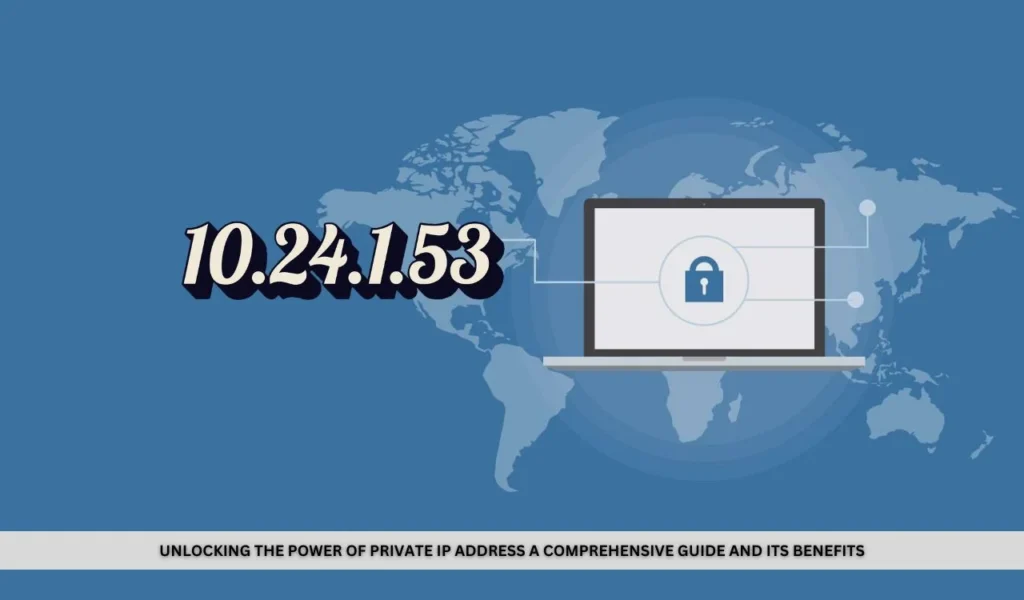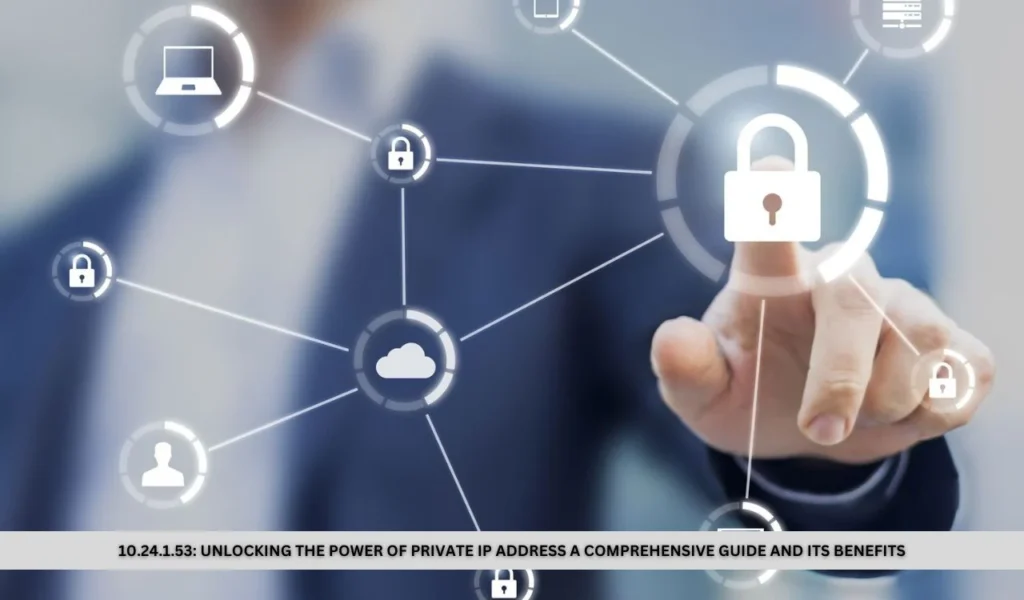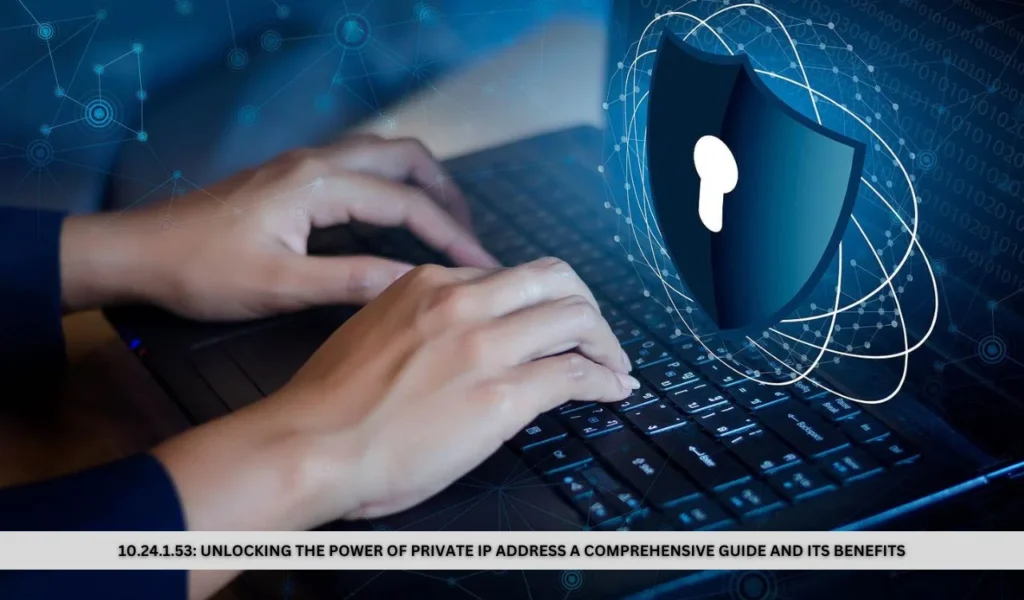10.24.1.53: Unlocking the Power of Private IP Address A Comprehensive Guide and Its Benefits

10.24.1.53 Unlocking the Power of Private IP Address A Comprehensive Guide and Its Benefits
In the world of networking, understanding IP addresses (10.24.1.53) is crucial for managing and troubleshooting network connections. This article explores various aspects of IP addresses, focusing on the private IP address 10.24.1.53. We’ll discuss what IP addresses are, how private and public IP addresses differ, and how to configure and manage the specific address 10.24.1.53. Additionally, we’ll cover practical tips for finding and securing your IP address, and provide answers to frequently asked questions.
What is an IP Address?
An IP (Internet Protocol) address is a unique identifier assigned to each device connected to a network. It functions similarly to a home address, allowing devices to locate and communicate with each other over a network. IP addresses are essential for routing data and ensuring that information reaches the correct destination.
Understanding Private IP Addresses
Private IP addresses are used within a local network and are not accessible from the external internet. They are part of specific ranges designated by the Internet Assigned Numbers Authority (IANA) for private use. These addresses help manage internal network traffic and provide an additional layer of security by keeping internal communication separate from public networks.
Private vs. Public IP Addresses
- Private IP Addresses: Used within local networks, such as home or office networks. They cannot be accessed directly from the internet. Examples include 10.0.0.0 to 10.255.255.255, 172.16.0.0 to 172.31.255.255, and 192.168.0.0 to 192.168.255.255.
- Public IP Addresses: Assigned to devices that need to be accessible over the internet. They are unique across the entire internet and are managed by Internet Service Providers (ISPs). Public IPs allow external devices to communicate with devices on a local network.
Configuring and Managing 10.24.1.53
To configure and manage the private IP address 10.24.1.53, you’ll need to access your network router or device settings. This address falls within the private IP range, so it’s typically used for internal purposes. Configuration involves assigning the IP to a specific device, setting up appropriate subnet masks, and ensuring it does not conflict with other devices on the network.
The Role of IP Address 10.24.1.53 in Networks
IP address 10.24.1.53 is used within private networks for internal communication. Its role depends on the network setup—whether it’s assigned to a computer, printer, or another device. By assigning this address, network administrators can manage internal resources efficiently and ensure proper network segmentation.
How to Find Your IP Address
To find your IP address, you can:
- For Public IP: Use an online service like “WhatIsMyIP.com” or check your router’s settings.
- For Private IP: On Windows, use the Command Prompt and type
ipconfig. On macOS, use the Terminal and typeifconfig. On mobile devices, check the network settings.
Read Also: TNemis.TNschool.gov.in: Unlocking the Power Streamlining Tamil Nadu’s Educational Administration

Why Use a Private IP Address?
Private IP addresses are used to:
- Segment Networks: Keep internal network traffic separate from external traffic.
- Enhance Security: Protect internal network devices from direct exposure to the internet.
- Optimize Resource Management: Efficiently manage and allocate IP addresses within a local network.
Troubleshooting IP Address Issues
Common IP address issues include:
- IP Conflicts: Two devices with the same IP address.
- Connectivity Problems: Devices not communicating properly due to incorrect IP settings.
- Configuration Errors: Incorrect subnet masks or gateway settings.
To troubleshoot, check device settings, restart devices, and ensure proper configuration.
Security Tips for Your IP Address
- Use Strong Passwords: For network devices and routers.
- Update Firmware: Regularly update router firmware to patch vulnerabilities.
- Monitor Network Traffic: Keep an eye on unusual activity.
- Implement Firewalls: Use firewalls to protect your network.
Benefits of Using IP Address 10.24.1.53
The IP address 10.24.1.53, being a private IP address, offers several benefits within a local network environment:
- Enhanced Security: Private IP addresses like 10.24.1.53 are not directly accessible from the internet, reducing the risk of external attacks. This isolation helps protect internal network devices from unauthorized access.
- Efficient Network Management: By using private IP addresses, network administrators can organize and manage devices within a local network more effectively. It allows for better control of network resources and simplifies troubleshooting.
- Network Segmentation: Using addresses such as 10.24.1.53 helps in segmenting a network into smaller, manageable sections. This segmentation can improve network performance and isolate issues to specific areas.
- Cost-Effective IP Management: Private IP addresses are not subject to the limitations of public IP address allocations. This means you can use a larger pool of IP addresses internally without worrying about the costs associated with public IP addresses.
- Local Resource Access: Devices with the IP address 10.24.1.53 can communicate with other devices within the same network seamlessly. This is ideal for sharing resources like printers, file servers, and other networked equipment.
- Customizable Configuration: Administrators have full control over the configuration of private IP addresses. This flexibility allows for tailored network setups to meet specific needs and preferences.
Overall, using the IP address 10.24.1.53 in a private network helps ensure a secure, well-managed, and efficient network environment.
FAQs
Can the IP address 10.24.1.53 be accessed from the internet?
No, the IP address 10.24.1.53 is a private IP address and cannot be accessed directly from the internet. It is intended for internal network use only.
How do I assign the IP address 10.24.1.53 to a device?
To assign the IP address 10.24.1.53 to a device, access your router’s configuration page, navigate to the DHCP settings or static IP assignment section, and specify the IP address for the desired device.
Is 10.24.1.53 a common IP address for routers?
No, 10.24.1.53 is not typically used as a default IP address for routers. Common default router IP addresses are usually in the range of 192.168.x.x or 10.0.0.x.
Read Also: DramaCool: Streaming Asian Dramas Safely and Legally

Conclusion
Private IP addresses, such as 10.24.1.53, are used within local networks to facilitate internal communication while keeping external access at bay. Configuring and managing these addresses properly ensures smooth network operations and enhances security. By following best practices for IP address management, troubleshooting common issues, and implementing robust security measures, you can maintain a secure and well-functioning network environment.
Whether you’re setting up a home network or managing a larger organizational network, having a solid grasp of how IP addresses work and how to handle them can make a significant difference in network performance and security.







